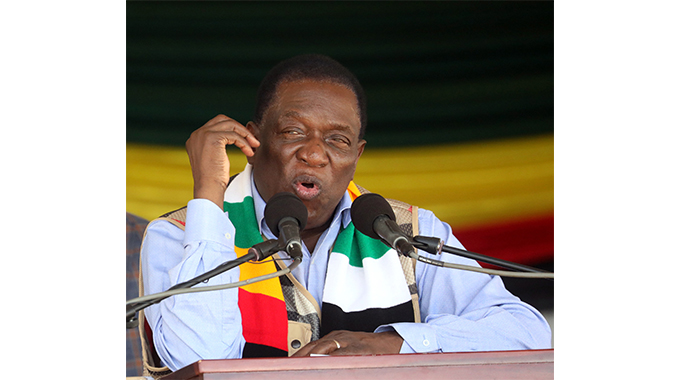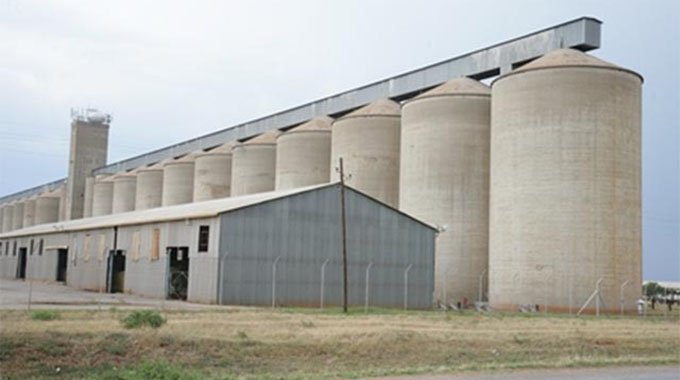
The Sunday News

Vusumuzi Dube, Online News Editor
ZIMBABWE’S agriculture sector continues to register enormous successes as initiatives put in place by the President Mnangagwa-led Second Republic pays off, with the country having more than enough grain stocks for both citizens and livestock.
The country has in the last couple of years been experiencing a significant agricultural production as it works on regaining its status as the breadbasket of Southern Africa. Speaking in an interview on the Zimpapers Television Network’s The Pulse, Minister of Agriculture, Lands, Fisheries, Water and Rural Development, Dr Anxious Masuka said the country has now been confirmed as food secure with enough grain to even cater for livestock.

President Mnangagwa
“Zimbabwe has now become food secure. In terms of maize, the 2.3 million metric tonnes that we are projecting this year against a human consumption estimated 15.1 million people, assuming every Zimbabwean eats maize, every day throughout the year, at 120 kilogrammes per person, we will require 1.8 million metric tonnes. We have even factored now consumption by livestock of 450 000 metric tonnes, from that maize yield, which will then bring us to just over 2,2 million metric tonnes, so we are above that, which is just for maize alone, we therefore have a surplus,” said Dr Masuka.
To add to the maize stock, he said, they also have traditional grain, which is pegged at just over 300 000 tonnes, meaning Zimbabwe has just over 2,6 million tonnes of cereals against a requirement for human and animal consumption of 2,2 million tonnes. The Minister said to add to that figure they also had stocks at the Grain Marketing Board, which are just over 300 000 tonnes, translating to a surplus of 600 000 tonnes.

Grain Marketing Board
“As part of the major policy interventions in agriculture, noting that there is climate change, Zimbabwe is predicted to become drier in the decades ahead, Cabinet took a policy position that we increase our physical cereals stock from the current maize-denominated stock of 750 000 metric tonnes target to 1,5 million metric tonnes, made up of 1,2 million metric tonnes of maize and 300 000 metric tonnes of traditional grain. This will see us having a ready market for all the surplus that we have this year and for the coming years and that will be earmarked to build a resilient strategic grain reserve sufficient to carry this country for the three seasons, should there not be any rain,” said the Minister.
Dr Masuka said as per their target they wanted to ensure perennial food security in the country inclusive of security for livestock feed.
“Government’s primary focus has been to prioritise agriculture and the major and overriding aspect is to ensure perennial food security for the nation. Now that we have attained that, we want to be able to build more of the strategic grain reserves and also get feed security so that we are able to provide enough to grow the livestock sector especially poultry sector which constitutes 70 percent of the feed requirements. We also want oil seed security, seeing that we spend US$300 million annually importing crude oil decanting, repackaging and selling in the local market whereas we can produce enough sunflower, enough cotton, enough soya beans, enough groundnuts to be able to do that,” said the Minister.

Dr Masuka also spoke on the performance of cotton, noting that the country was projecting over 300 000 metric tonnes of cotton from just over 160 000 metric tonnes target that was achieved last year. He however, said cotton yield was affected by the major problems in Masvingo and Manicaland provinces which are high cotton production areas where a very late start to the rains and prolonged dry period was experienced.
“In terms of the producer prices, we will see improvement across all the crops, for example, cotton we have already announced that we are going to incentivise quality and to pay farmer effort, we will have a grade differentiated pricing regime.
“We have also said cotton will be treated as an export crop just like tobacco, so farmers will retain 85 percent of their value in US dollars, the government is also increasing its shareholding in Cottco to ensure that we have better control and better payment systems so that we incentivise farmers,” said the Minister.
Dr Masuka emphasised that it was the farmers’ viability that would undergird the transformation of the agriculture sector in the country.



